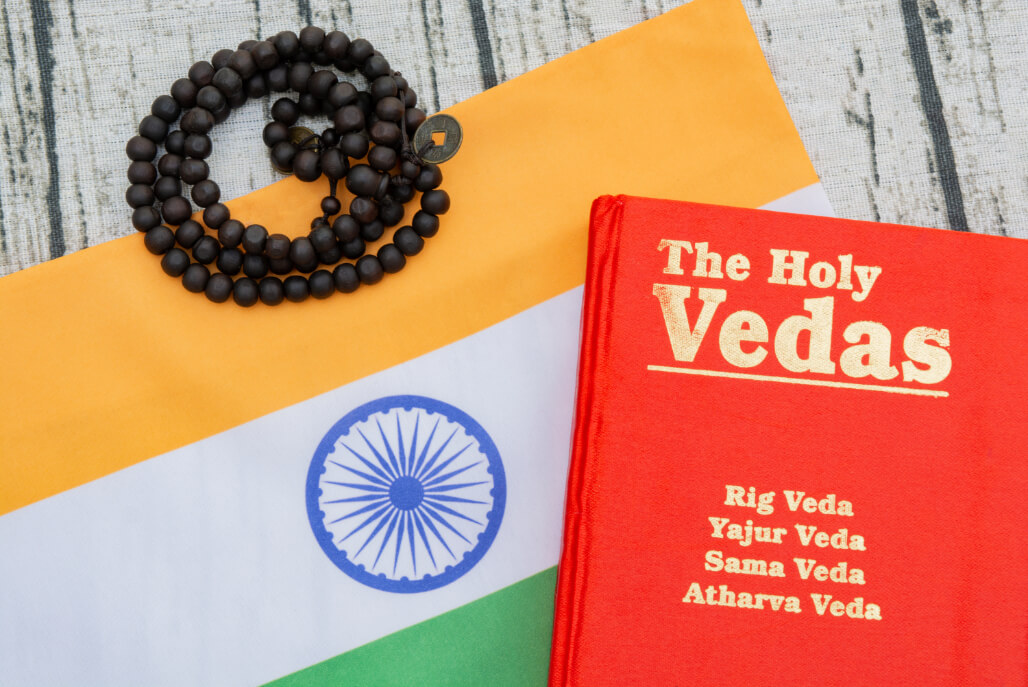Annual Giving Campaign - 2025-2026 is under way. Donate today by Clicking Here, and help us reach our goal.
So far $606,052 has been raised out of a target of $ 3 Million. Click Here to donate today and help us reach our goal.
$1,500.00

Admission into a HUA Graduate program of study (MAH or DHS)

At the end of the Vedic origins of Hinduism course, students will be able to:

The vedic origins of Hinduism course will begin with a general introduction to the Veda and Vedic Literature. It will provide an overview of the Veda and its role in shaping the religious and philosophical traditions of ancient India. Students will study different schools of thought and scholarly perspectives on understanding the meaning, symbolism, and purpose of the Veda. They will explore various interpretations of the Vedic texts throughout history.
They will delve into the worldview presented in the Vedic texts. Students will examine the Vedic understanding of existence, human life, cosmic order, and the interconnectedness of all beings. They will gain insights into the Vedic perspective on the purpose and goals of human existence. Focusing on the linguistic aspects of the Vedic texts, students will explore the unique features of Vedic Sanskrit and learn how the language influences the interpretation and understanding of the Vedic mantras.
They will study and analyze the key terms and concepts used in the Vedic texts. They will gain a deeper understanding of the symbolic and metaphorical language employed in the Vedas and its significance in conveying profound philosophical ideas. The course will also introduce the major deities of the Vedic pantheon. Students will explore the characteristics, roles, and symbolism associated with deities such as Agni, Indra, Varuna, Mitra, and others.
They will recognize the Vedic understanding of divinity and the relationship between these deities and humans. Along with the deities, students will also learn about the lives, teachings, and contributions of prominent Rishis i.e., Seers in preserving and transmitting Vedic wisdom. They will gain insights into the spiritual practices and insights of these revered figures. The course will also introduce the students to the meter and rhythm in Vedic poetry known as Chandas.
Students will gain an understanding of the different types of meters used in the Vedic texts and understand their significance in the recitation and chanting of Vedic hymns. They will also explore the mythological narratives and legends found in the Vedic texts, and examine stories, symbolic, and allegorical representations that convey deeper philosophical and spiritual insights within the Vedic tradition.
The Vedic Origins of Hinduism course will also delve into the concept and practice of yajna (translated typically as sacrifice) in the Vedic tradition. Students will learn about the rituals, symbolism, and spiritual significance of yajnas in the Vedic context, as well as their connection to cosmic harmony and the relationship between humans and deities. The course will leave students with a deeper appreciation of the foundational texts of Hinduism.
The course will be structured to include a variety of activities and assessments to ensure comprehensive learning. The following is the breakdown of the course structure:
By incorporating a variety of activities and assessments, the course structure aims to provide a holistic learning experience that encourages active participation, critical thinking, research skills, and deep understanding of the Vedic origins of Hinduism.
$1,500.00
On the program page, there are multiple payment plan options to choose from.


